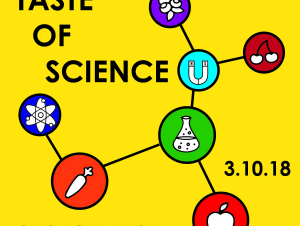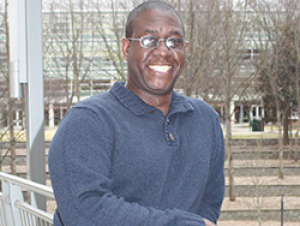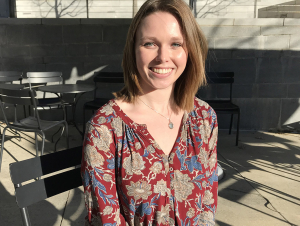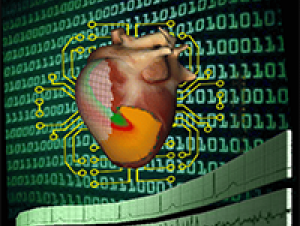To request a media interview, please reach out to experts using the faculty directories for each of our six schools, or contact Jess Hunt-Ralston, College of Sciences communications director. A list of faculty experts is also available to journalists upon request.
Latest News
It's been all lightning bolts for Laura and James Belanger, who met at Georgia Tech as undergraduates, fell in love, got married and pursued careers as rival forecasters for two of the nation's biggest weather services.
The 2018 Atlanta Science Festival offers a kaleidoscope of cures for boring science including two new events from the College of Sciences. Taste of Science and Silver Scream Science Spookshow will spark enthusiasm, joy, and curiosity through nerdy exploration of food and ear-shattering hard-rock rendering of scientific concepts.
Two members of the College of Sciences Dean's Office are members of the second cohort of the Leading Women@Tech program: Director of Administration Dian Chung and Director of Communications Maureen Rouhi. In addition, Julie Ancis, adjunct professor in the School of Psychology, is the program's co-director.
February is Black History Month, a special time set aside to celebrate the contributions of African-Americans. The College of Sciences joins the celebration by inviting the perspectives of African-American colleagues through a two-part Q&A.
As a child, Sophia Guldberg questioned everything. Now, the junior biochemistry major is one of two Georgia Tech winners of the 2017 Astronaut Scholarship. She sat down with us to talk about the beauty of sea turtles, her extensive research experience, and her possible future in space.
This week in Nature, an international team reports an imaging technique to observe the vortex-like, rotating contractions that underlie life-threatening ventricular fibrillation. The technique may enable early identification of heart rhythm disorders, better understanding of cardiac disease, and development of better treatments.








